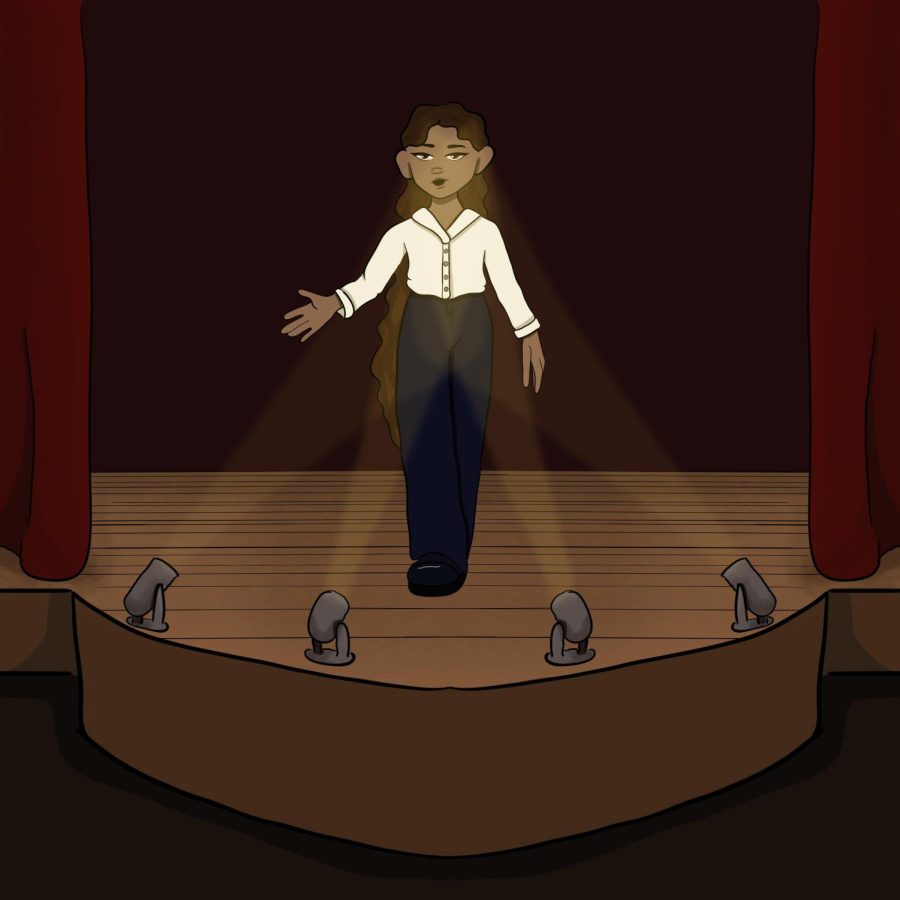Opinion | Young professionals, take an acting class
February 1, 2023
I’m a theater kid. Have been all my life. And theater kids get a lot of flak, for good reason –– we’re loud, we’re dramatic and we terrorize restaurants with piss-poor flash mobs of numbers from Grease. However, when the curtain falls and the theater kid stows away their character shoes for good, they will have a leg up in the job market.
In internships and jobs I’ve had –– and in classes, too –– I’ve watched professionals, experienced and brand-new alike, conduct interviews or present in meetings. And in many professionals, there’s something missing — they have no charisma and appear unprepared and timid. I think they would all benefit from an acting class.
Your initial thought might be that acting class will make you good at lying. That’s actually one of the biggest misconceptions about acting. According to Sanford Meisner, one of the fathers of modern acting, “Acting is behaving truthfully under imaginary circumstances.” If anything, acting training can make you more fluid and more adaptable to ever-changing circumstances, all the while keeping you at your most authentic.
A central pillar of Meisner’s technique is improvisation. Essentially, when approaching a scene, an acting teacher will have the actors put down their scripts, set an objective and have the actors try to achieve that objective off-the-cuff.
Improv builds a solid muscle for fast-paced, collaborative problem-solving, which is frequently required in the corporate world. Skills such as the improv principle of “Yes, and…” are beneficial for thinking on your feet. When you’re in an improvised scene and someone suggests a new idea, you never say “no.” You say “yes” and run with the suggestion, adding another layer to the situation. Instead of saying “no” and flat-out rejecting people’s ideas, by following the “Yes, and…” principle, a professional familiar with improv can entertain and value the contributions of others, all the while promoting a free-flowing exchange of ideas. Improv inspires a positive, creative spirit that the corporate world yearns for.
I’ve seen many presentations by college students and professionals alike, and many of them are not as poised and professional as they could be. Sometimes they’re fidgeting, closed-off and too quiet and mumbly for their audience to comprehend. They might benefit from voice and movement training.
I used to dread the voice and movement part of acting class. I’d be in a room covered with yoga mats, and my acting teacher would make us do push-ups and yoga. Then, we’d stand up, find a balanced, tall posture and moan at various pitches. I hated this, and lots of other people do, too. But the product of this training is an individual who stands tall and speaks clearly and loudly. Plus, I still use some of the stretches and warm-ups from class to soothe my nerves before auditions and presentations! A primed, soothed body is a body ready to succeed.
As an actor, you are a student of human behavior. With that, when you receive a text, you explore your character. Even if you’re playing a villain, you have to approach your character through the lens of empathy and love. Such an outlook makes for a wonderful leader and collaborator, one that understands coworkers’ situations and treats them with grace and understanding.
Being a student of human behavior, especially in marketing, can also greatly enhance one’s work. You ask yourself, what makes people tick? What motivates them to seek a product? What problems do they have, and most importantly, what do they want? Upon answering these questions, a professional can design the perfect personalized approach for their consumer base.
There’s a lot of discourse about whether or not humanities degrees, or humanities studies at large, are worth it. I’ve endured countless “What are you going to do with a theater degree?” speeches from family, friends and Hinge dates. But ultimately, these soft skills are incredibly valuable. There are thousands of college seniors who all have the same education and similar experiences with internships. But some will be poised in front of an audience, empathetic and goal-oriented and some will not. Acting training will set you apart from the pack.
Paige Wasserman (she/her) writes about the arts, pop culture, campus culture and things that make her want to scream. You can reach her at PLW15@pitt.edu.



